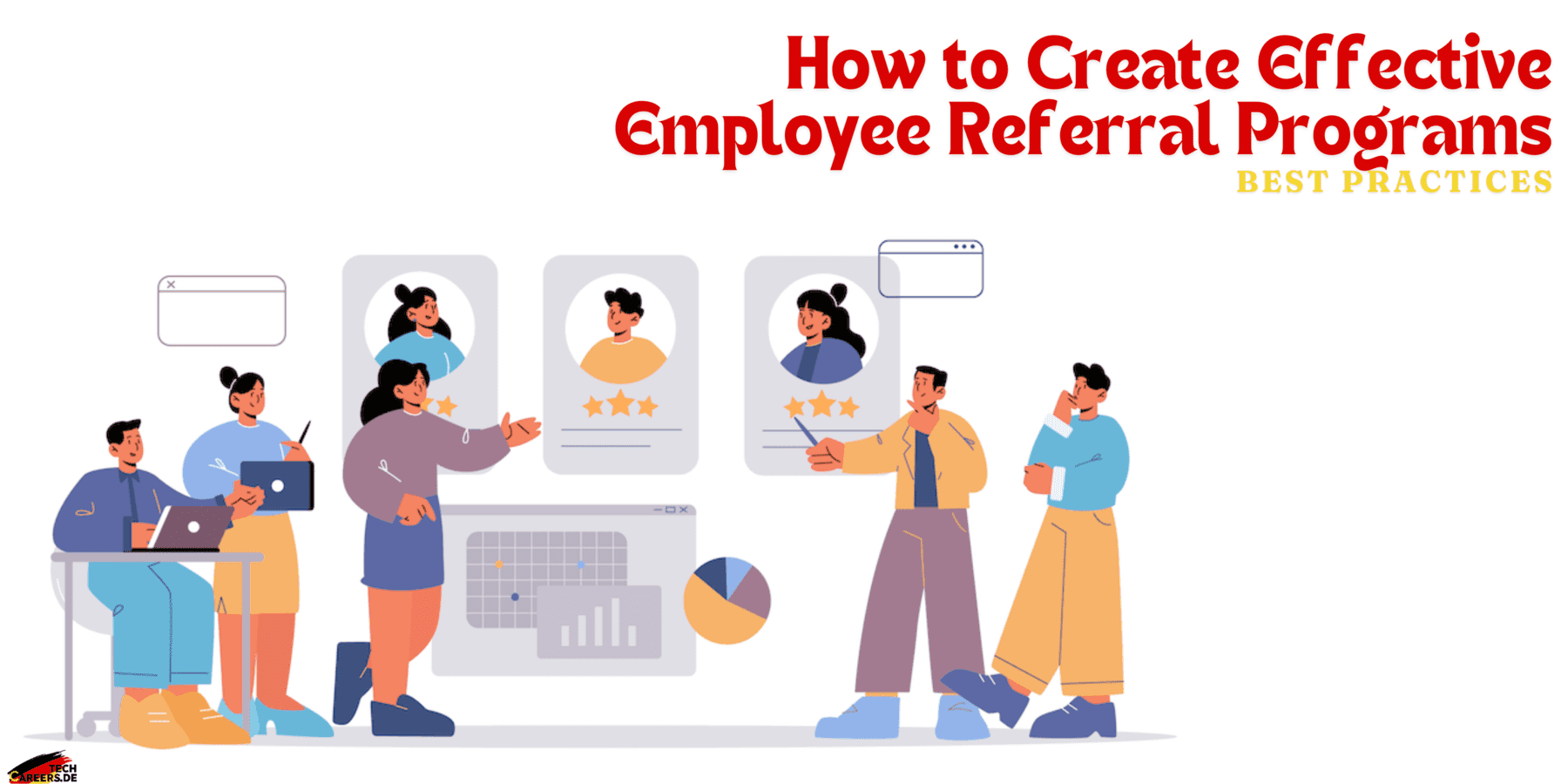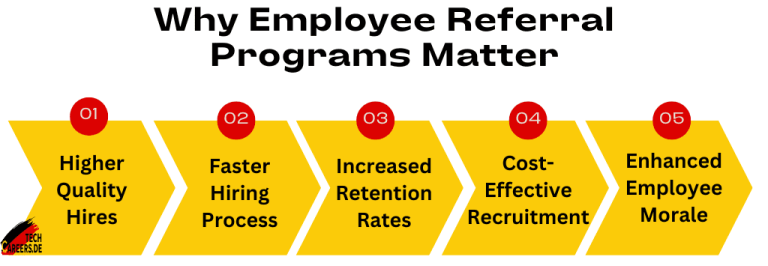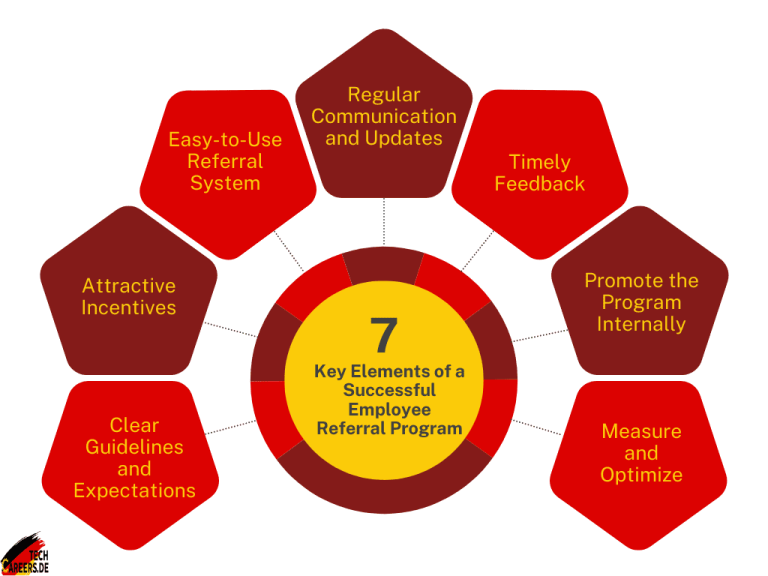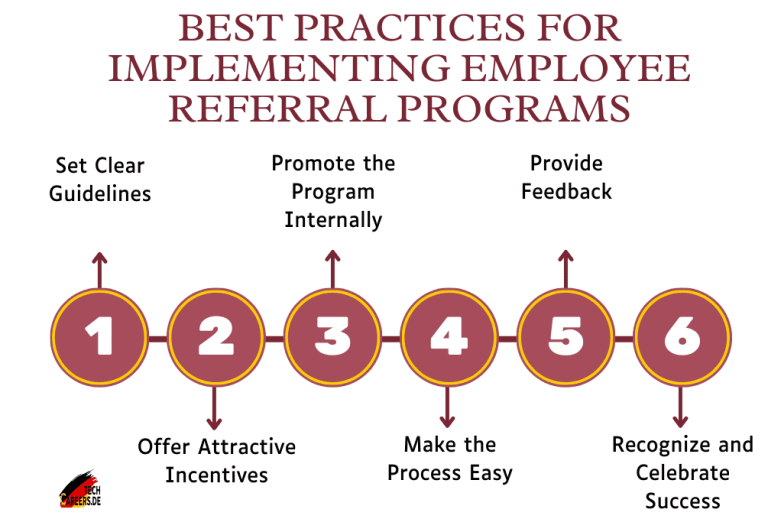
Employee referral programs play a crucial role in modern recruitment strategies, offering a more efficient way to fill open positions. These programs leverage the existing network of current employees to find suitable candidates, which can be especially effective in competitive markets like IT jobs in Germany. By tapping into their workforce’s personal and professional connections, companies can access a broader talent pool. This approach not only enhances the quality of hires but also fosters a sense of engagement and participation among employees. In today’s fast-paced job market, having a robust referral program can be a significant advantage for any organization.
Why Employee Referral Programs Matter
Employee referral programs are gaining popularity for a reason. They provide numerous advantages to both employers and employees. Here, we’ll delve into the benefits of employee referral programs and understand why they are essential for a thriving workplace.
Higher Quality Hires
One of the primary benefits of employee referral programs is the quality of candidates they attract. Employees tend to refer individuals they believe are highly qualified and a good cultural fit for the company. This leads to a higher caliber of applicants compared to those from traditional recruitment methods.
Faster Hiring Process
Referred candidates often move through the hiring process more quickly. Since they come with a recommendation from a trusted employee, there is typically less need for extensive screening. This efficiency can be a significant advantage, especially in a competitive job market.
Increased Retention Rates
Employees hired through referral programs often stay longer with the company. They have a better understanding of the company culture and expectations from the outset, reducing the likelihood of turnover. This stability benefits the organization by maintaining a consistent and experienced workforce.
Cost-Effective Recruitment
Referral programs can significantly reduce recruitment costs. Traditional hiring methods, such as job boards and recruitment agencies, can be expensive. In contrast, employee referrals usually come with minimal costs, often just a referral bonus, which is generally less than the cost of traditional recruiting methods.
Enhanced Employee Morale
When employees are involved in the recruitment process, it can boost their morale and engagement. They feel valued for their input and are likely to be more committed to the success of their referrals, fostering a supportive and cohesive work environment.

Crafting the Perfect Cover Letter for a Job in Germany
In addition to understanding the benefits of employee referral programs, it’s crucial to know how to present yourself effectively when applying for jobs. A well-crafted cover letter for a job in Germany can make a significant difference. Here are some tips:
- Address the letter to the right person: Personalize your cover letter by addressing it to the hiring manager or relevant person.
- Showcase your skills and experience: Highlight your qualifications and how they match the job requirements.
- Express your enthusiasm: Demonstrate your genuine interest in the position and the company.
- Be concise and to the point: German employers appreciate efficiency and directness, so keep your cover letter clear and concise.
By combining the strategic advantages of employee referral programs with a compelling cover letter, job seekers can enhance their chances of landing their desired positions in Germany.
Key Elements of a Successful Employee Referral Program
To maximize the benefits of employee referral programs, it’s essential to design and implement them effectively. Here are the key elements that contribute to effective employee referral programs:
Clear Guidelines and Expectations
Establish clear guidelines and expectations for the referral program. Employees should understand how the program works, including the types of positions eligible for referrals, the process for submitting referrals, and the criteria for successful referrals. Transparency helps ensure that employees are motivated to participate and know what to expect.
Attractive Incentives
Incentives are a crucial component of any referral program. To motivate employees to refer high-quality candidates, offer appealing rewards. These can range from cash bonuses and gift cards to additional vacation days or other perks. Ensure that the incentives are significant enough to encourage participation.
Easy-to-Use Referral System
An effective referral program must be user-friendly. Implement a streamlined system that allows employees to submit referrals easily. This could be an online portal or a simple form that integrates with your existing HR software. The less complicated the process, the more likely employees will engage with it.
Regular Communication and Updates
Maintain regular communication with employees about the referral program. Provide updates on referred candidates’ statuses and celebrate successful hires through the program. Recognizing and appreciating employees’ contributions fosters ongoing participation and engagement.
Timely Feedback
Provide timely feedback to employees who make referrals. Whether a candidate progresses in the hiring process or not, keeping the referring employee informed shows respect for their effort and encourages continued participation.
Promote the Program Internally
Regularly promote the referral program within the organization. Use internal communications, such as newsletters, emails, and company meetings, to remind employees of the program and its benefits. Highlighting success stories and showcasing rewards can keep the program top-of-mind.
Measure and Optimize
Track the performance of your referral program by measuring key metrics such as the number of referrals, the quality of hires, the time-to-fill positions, and retention rates of referred employees. Use this data to identify areas for improvement and continuously optimize the program for better results.

Best Practices for Implementing Employee Referral Programs
To maximize the benefits of referral programs, it’s essential to implement them effectively. Here are some best practices for creating the best employee referral programs and ensuring their success.
Set Clear Guidelines
Establish clear and transparent guidelines for your referral program. Outline who is eligible to participate, the types of positions that can be referred, and the rewards or incentives offered. This clarity will help employees understand how the program works and encourage participation.
Offer Attractive Incentives
To motivate employees to refer quality candidates, offer attractive and meaningful incentives. These can range from monetary bonuses to additional vacation days or even public recognition within the company. The key is to ensure the incentives are enticing enough to encourage active participation.
Promote the Program Internally
Consistent promotion is crucial for the success of your referral program. Regularly remind employees about the program through internal communications, such as newsletters, emails, and team meetings. Highlight success stories and share employee referral programs examples to demonstrate the program’s impact.
Make the Process Easy
Simplify the referral process to encourage more participation. Provide employees with an easy-to-use referral platform or form. Ensure that the submission process is straightforward and doesn’t require excessive time or effort. The easier it is to refer someone, the more likely employees will do it.
Provide Feedback
Keep employees informed about the status of their referrals. Whether their referral is hired or not, providing feedback shows that you value their effort and keeps them engaged in the process. A simple update on the referral’s progress can go a long way in maintaining interest in the program.
Recognize and Celebrate Success
Publicly recognize and celebrate successful referrals. This not only rewards the employee who made the referral but also showcases the program’s success. Celebrating wins can inspire other employees to participate and create a positive buzz around the program.

Examples of Successful Employee Referral Programs
Looking at employee referral programs examples can provide valuable insights into what works well. Companies like Google, Accenture, and Salesforce have implemented some of the best employee referral programs, and their strategies offer useful lessons:
- Google: Google offers substantial financial rewards and unique incentives like the opportunity to work on high-profile projects, making their referral program highly attractive.
- Accenture: Accenture’s program emphasizes quick and transparent communication, ensuring employees are kept in the loop about their referrals’ status, which fosters continued participation.
- Salesforce: Salesforce combines monetary incentives with a strong emphasis on company culture, ensuring referred candidates align well with their values, leading to high retention rates.
By following these best practices and learning from successful examples, you can create an effective and engaging employee referral program that not only attracts top talent but also fosters a positive and collaborative workplace environment.
Let’s Enhance Your Recruitment Strategy and Cultivate a More Engaged Workplace!
Start implementing the best employee referral program for your organization now. By following these best practices and learning from successful examples, you can attract top talent and create a supportive, collaborative environment that benefits everyone. Don’t wait—unlock the potential of your employee network today!





 Previous Post
Previous Post Next Post
Next Post